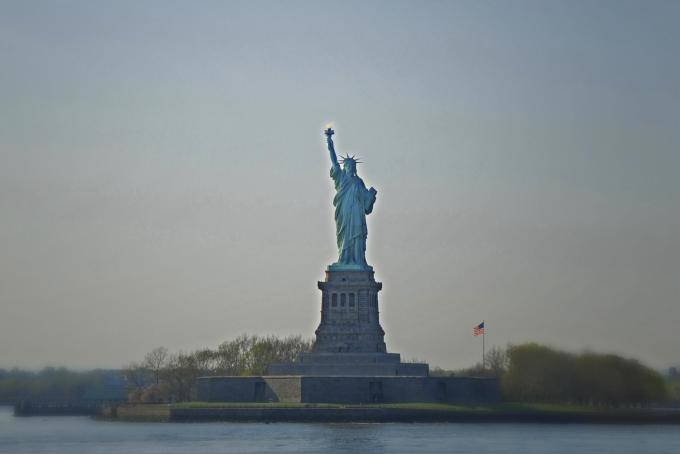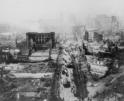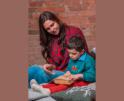
Culture
Over the course of the recent 4th of July weekend, the stories of two people -- one a young boy and the other a woman -- came together for me in a powerful way. The boy and the woman don't know each other; they have never met. In fact, the woman died over 100 years before the boy was born.
The woman is Emma Lazarus. Emma was born into a wealthy New York family and, from an early age, it was clear to her parents that she was born with the heart of a poet. She published her first collection of creative writing as a teenager and was soon recognized and celebrated at home and around the world for her remarkable literary gifts. As a Jewish woman and as a woman of intelligence and insight, Emma came to know well how prejudice and hatred were often supported and reinforced by larger social policy or by the failure of governments to protect those people who were pushed to the margins because they were different from the majority and the powerful. Of being a Jewish woman in the world she once wrote; "I am perfectly conscious that...contempt and hatred underlies the general tone of the community towards us."
In 1883 Emma donated one of her poems called "The New Colossus" to raise funds for a cause that was close to her heart. Most Americans know the beautiful spirit, if not the exact lines, that are the heart of that work.
"Give me your tired, your poor,
Your huddled masses yearning to breathe free,
The wretched refuse of your teeming shore.
Send these, the homeless, tempest-tossed to me,
I lift my lamp beside the golden door!"
These words are forever enshrined at the pedestal of the Statue of Liberty whom Emma called "mother of exiles," a mother holding a light in the darkness, a mother scanning the broad horizon to welcome with friendship the world's lost and forgotten children, the outcast and the oppressed, the ones seen by others as worthless. And by the light of the torch she holds high, Emma imagined Lady Liberty showing the lost and forsaken ones a way to a new home and a new future: America.
Gilberto Francisco Ramos Juarez was one of those invisible ones trying to find his way from the darkness of poverty and despair to a new home and a new future. When he began his long and difficult journey he was only a boy. The mother who gave him birth kissed him goodbye and placed a white rosary around his neck as he walked away from the poverty of a small village high in the mountains of Guatemala in search of that light from the torch held high by the mother of exiles. On June 15th -- just a few weeks ago -- Gilberto's young body was found somewhere along the unforgiving southwest border. He died in the dark, and he died alone. Around his neck, he was still wearing his mother's white rosary.
In the language of government, Gilberto Francisco Ramos Juarez is called a UAC -- "an unaccompanied alien minor." Are not those bitter last words for his too short life? In the poetry of Emma Lazarus, Gilberto is called a tired poor one yearning to breathe free. In the words of our faith, we call Gilberto a precious and irreplaceable child of God.
Words are important. What we say reveals how we see. An "unaccompanied alien minor" is easy to ignore, and his death easy to forget. A dead 15 year old boy, with his mother's rosary around his neck, is a child to be mourned. His dying alone in the dark searching for hope and safety, unable to see that light from the torch held by the mother of exiles is an injustice that should, I think, make us uncomfortable and, perhaps, outraged.
It is estimated that this year 60,000 children will flee the hopelessness of poverty and violence and journey alone, without parents, in search of that same light. They are the "wretched refuse" that Emma Lazarus heard Lady Liberty calling home. In speaking about the global crisis of refugees and immigrants, Pope Francis recently said: "We have become used to the suffering of others: 'It doesn't affect me; it doesn't concern me; it's none of my business!'. The globalization of indifference has taken from us the ability to weep!"
Emma Lazarus, a daughter of Israel, gave voice to our nation's promise to see the holy dignity of all God's children and open her arms wide in welcome with the words "Give me your tired, your poor, your huddled masses yearning to breathe free." As we watch the immigration crisis along the southern border of the United States grow more complex and more tragic by the day, may we, by God's grace, recover our capacity to weep and, having wept, together make bright the light of welcome and hope that the mother of exiles still holds high.
Deacon Paul M. Kline is an Associate Professor of Social Work at Boston College and a permanent deacon of the Archdiocese of Boston assigned to St. Mary Church in Foxborough.
Recent articles in the Culture & Events section
-
Boston and the nation respond to the San Francisco Earthquake of 1906Thomas Lester
-
See you in the storyLaura Kelly Fanucci
-
'Dignitas' and the mediaRussell Shaw
-
Scripture Reflection for April 14, 2024, Third Sunday of EasterDeacon Greg Kandra
-
St. Helena's House is established in the South EndThomas Lester


















